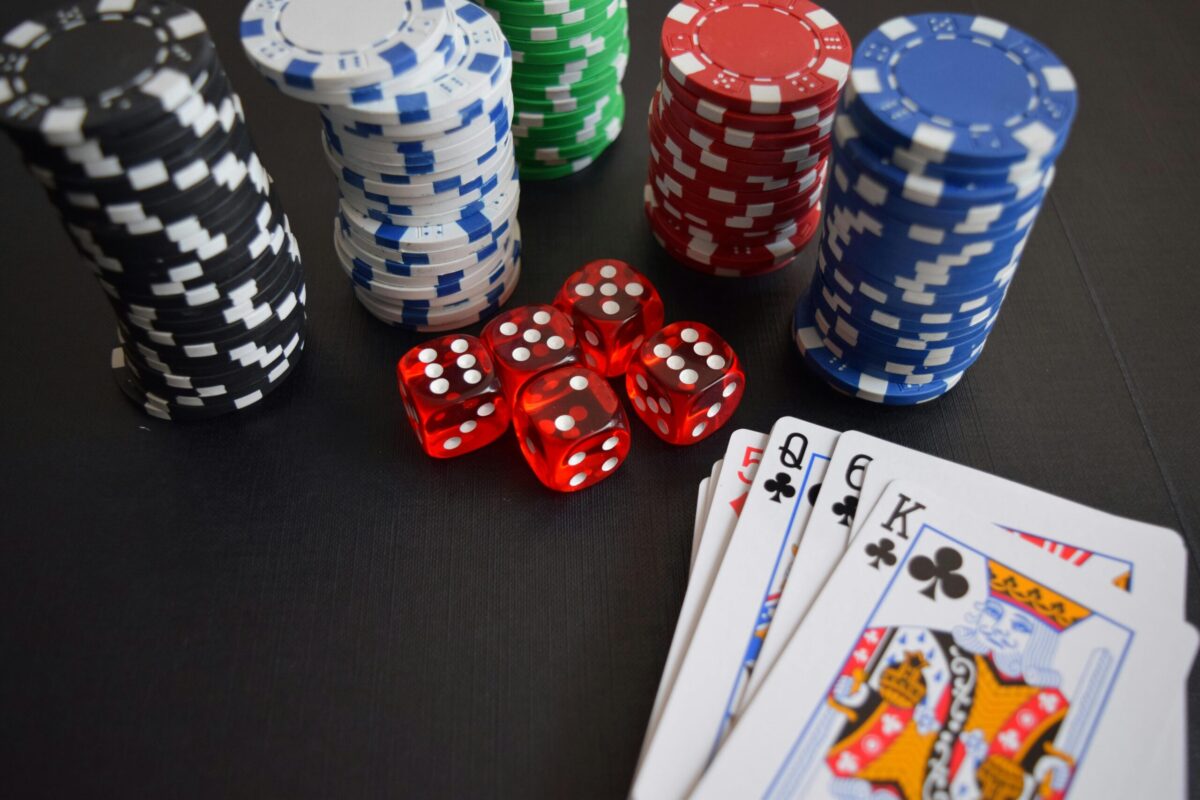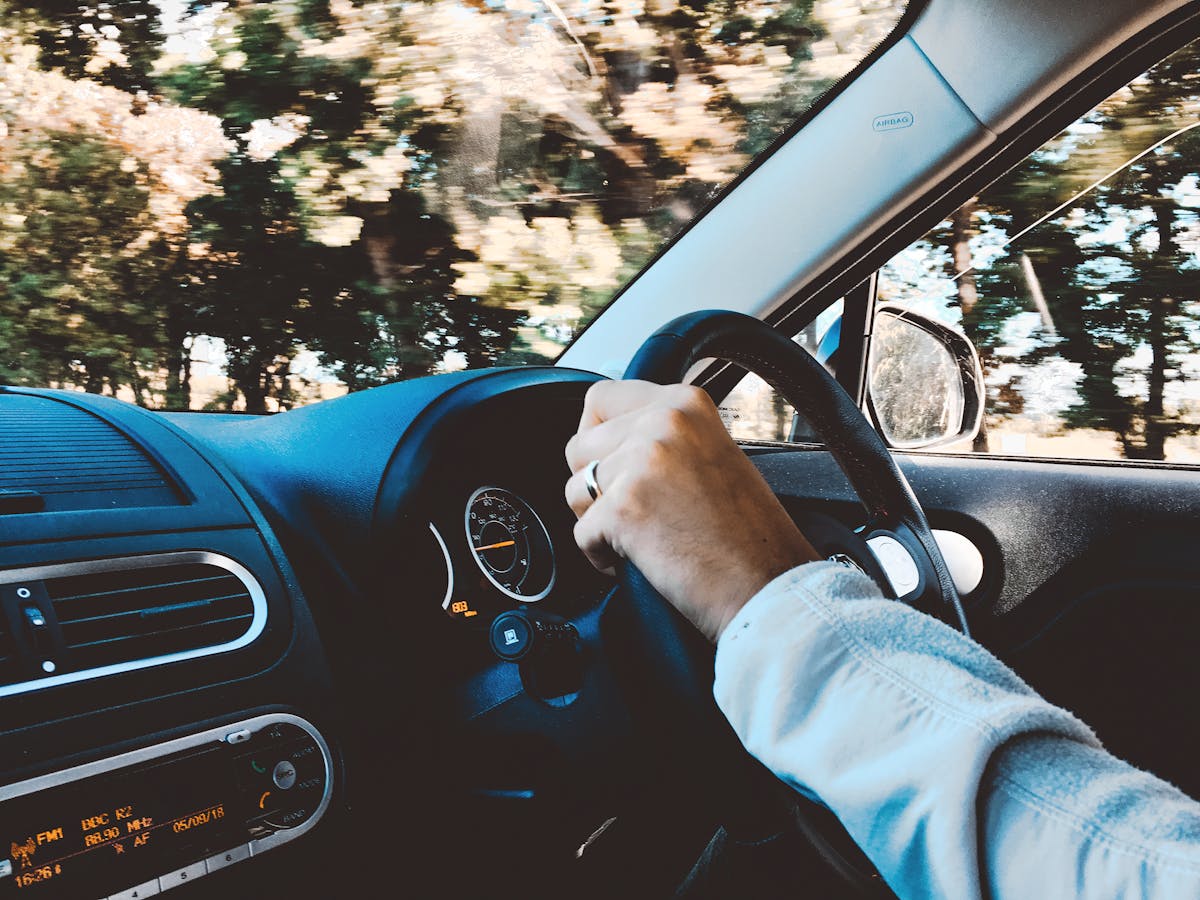The link between anxiety and gambling is two-sided. They fuel each other, creating a vicious circle that is difficult to break. For anyone actively working on overcoming a gambling addiction, understanding when anxiety is driving risky gambling behavior is a must. Identifying anxiety-induced risky gambling patterns, as well as thoughts and emotions contributing to them, is essential for keeping gambling cravings under control. Oftentimes, you need professional assistance to recognize those patterns, and Greater Boston psychiatric services can help you with that.
The Hidden Connection Between Anxiety and Gambling Addiction
It is not difficult to assume that those who struggle with compulsive gambling, especially when experiencing financial problems, can develop anxiety. However, the link between anxiety and gambling is more complex than that. These two mental health conditions fuel each other and create a vicious circle that is difficult to break without external support.
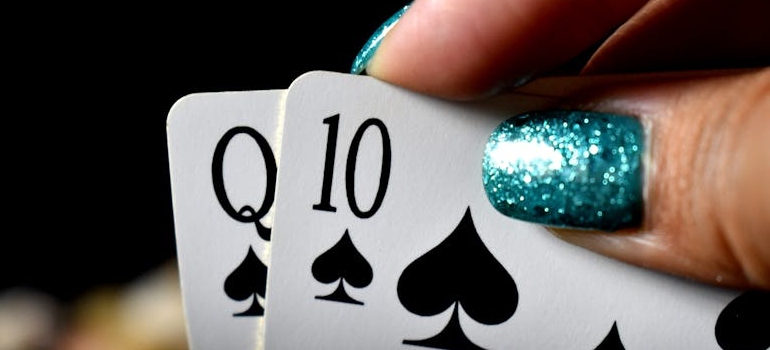
- On one hand, people struggling with anxiety are looking for an outlet and a quick fix that will help them feel better. Gambling, just like any other addiction, implies a surge of dopamine, causing pleasure that overpowers anxiety. As this feels like a reward to our brain, a person can easily establish gambling as a coping mechanism for anxiety. While in the short term, this mechanism works, in the long run, it causes an additional problem—sports betting addiction.
- On the other hand, those who gamble and inevitably lose start experiencing overwhelming worry and fear about their future, financial death, and how others will perceive them. Pathological gambling induces or increases anxiety in people.
Although complex, understanding the link between anxiety and risky gambling is important. It’s the first step in the analysis and identification of anxiety-induced gambling patterns and, therefore, essential for breaking the cycle.

Identifying Anxiety-Induced Risky Gambling Patterns
Tracking your behavior, situations, and emotions preceding it is the road to identifying patterns where anxiety contributes to hazardous gambling activities. It sounds easy, but in reality, it can be challenging, as when you feel emotionally charged, you tend to behave rather than stop and observe. However, although challenging, it’s essential to track the antecedents of your gambling activities to understand what fuels them.
Frequently, it’s anxiety driving gambling behavior. Common gambling habits such as excessive betting and chasing losses are linked to high anxiety levels, especially when anxiety is caused by financial struggles or high work pressure. Anxiety can induce many maladaptive behaviors, like drinking or leaning into substance abuse. Still, when coupled with poor financial management and the tendency for risky behavior, it oftentimes ends up in a gambling addiction.
Recognizing the Signs That Anxiety Is Leading to Dangerous Gambling Habits
So, how do you know that it is anxiety pushing you into gambling? Here are some usual scenarios when you can draw that conclusion:
- You are making sudden, impulsive gambling decisions during stressful periods, especially when there is no history of gambling before.
- The majority of your focus is on gambling instead of facing real-life problems, relationships, or responsibilities.
- You are feeling extreme guilt or regret after gambling, yet you are unable to stop.
Recognizing when anxiety is driving risky gambling behavior also means excluding other potential explanations. Other emotions and problems can also drive gambling behavior. For instance, if you are struggling with a major depressive disorder, you might gamble to experience that surge of dopamine coming with gambling or placing risky bets.
Understanding your emotions is the key. Anxiety is characterized by inner turmoil, feelings of dread, fear about anticipated events, uneasiness, tension, and restlessness. If this is how you feel before gambling, and you see gambling as a way out of feeling this way, you can be certain that your gambling behavior is anxiety-induced.

The Psychological Triggers Behind Anxiety-Driven Gambling
Anxiety is a complex combination of emotions, and therefore, it’s important to understand the different psychological triggers you might be experiencing. If you know which feeling dictates your gambling behavior, you can work on finding other ways to manage it.
- Financial stress combined with the fear of failure is a frequent trigger for high-risk gambling decisions. Fear of failure specifically drives repeated attempts to gain something by gambling.
- Fear and nervousness related to social interactions, meaning social anxiety, can be a push toward gambling as an alternative to real social interactions. This psychological trigger also induces other addictions that may involve occasional interactions in a controlled space, such as gaming addiction.
- Seeking a sense of control at uncertain times can also manifest in gambling. Sports betting, in particular, gives people this false sense of control they need and cannot find elsewhere. This control-seeking is behind other problems as well, like obsessive compulsive disorder and eating disorders.
Why Anxiety’s Influence on Hazardous Gambling Behaviors Is Often Overlooked
Despite being recognized by experts as an addiction, gambling issues are often minimized, interpreted as a harmful habit, or regarded as solely a financial rather than a mental problem. The same applies to anxiety. As some level of anxiety is normal, it’s often dismissed as a typical reaction without giving it too much thought. It is also frequently mistaken for general stress and, therefore, dismissed.
The lack of perception of anxiety and gambling as mental health problems that require additional attention is one of the main reasons people with these issues do not seek help. Furthermore, when these problems drive each other, and we can speak of anxiety-induced gambling, people are even more reluctant to seek help, believing they have found a good coping mechanism or feeling shame for their behavior. Shame and guilt are typical followers of gambling struggles, making people silent about things they are going through. The ongoing stigma surrounding gambling, and even seeking help in online therapy for gambling addiction, is also putting a stop to help-seeking attempts.
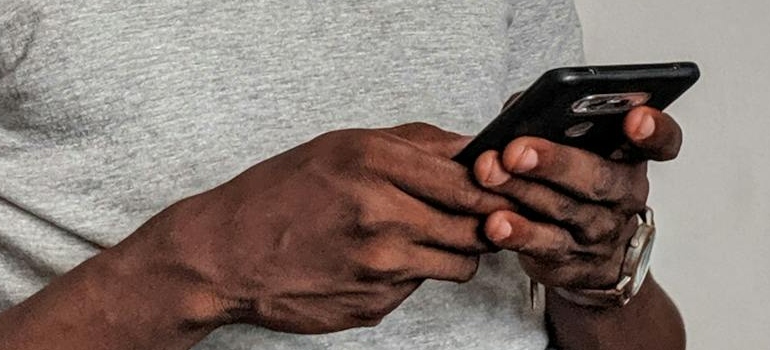
Steps to Reduce Anxiety-Driven Gambling Urges
Once you recognize signs of struggle in yourself or others, we encourage you to turn to professionals for help. This approach is but one of many different strategies you can implement to deal with your anxiety or gambling behavior. Here is a short overview of things you can do to start managing both anxiety and gambling activities:
- Establish a healthy routine. Disruptions to daily patterns can increase anxiety, while routine is beneficial when fighting it. Healthy morning or evening routines and simple techniques for managing stress throughout the day can be a big help when dealing with the abundance of negative emotions brought about by anxiety. If you tame your anxiety, anxiety-induced behaviors, like gambling, should decrease as well.
- Work on developing healthy coping strategies. If gambling is your outlet for anxiety, what you primarily need are healthier outlets. Establishing new coping mechanisms is not easy, and you might require professional support to do so, but once you establish them, you can live a life feeling in control of your emotions and actions.
- Seek professional support. There’s no shame in needing someone to help you overcome your current struggles. Emotional support from loved ones is important, but experts will know how to set treatment goals for anxiety and empower you to stay in control long-term. Furthermore, they can help you develop skills that are beneficial for other areas and problems of living.
Practical Strategies for Avoiding Risky Gambling When Anxious
In addition to the long-term strategies mentioned above that can help you work on your issues for lifelong recovery, there are several actions you can take right now to feel better and be in control of your life:
- Restrict your gambling-related activities. Typically, people can’t abruptly stop gambling, so setting limits for yourself in that aspect is beneficial. You can set financial limits or limits in terms of time spent on betting platforms.
- Identify and avoid gambling triggers. One of the best ways to do it is by restricting screen time and, with that, exposure to gambling platforms, ads, and other triggering content that drives impulsive decision-making.
- Use mindfulness techniques to break the connection between anxiety and gambling. Mindfulness can easily be implemented in your daily routine, and even if you practice it for only several minutes a day, it will still help curb anxiety and manage stress. By reducing anxiety, the need for gambling as a response to it will reduce as well.
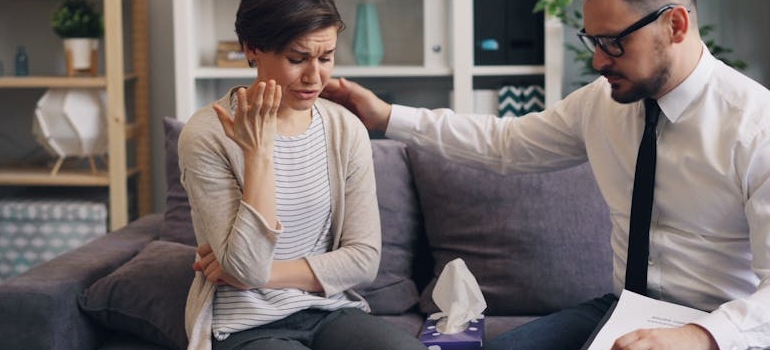
Finding the Right Support for Anxiety and Problem Gambling
Addressing both pathological gambling and anxiety disorder is easier with proper support. Ideally, everyone should have support in their immediate environment from their friends, family, and community. However, regardless of how much love and support you’re getting from your loved ones, professionals can guide your recovery and empowerment to establish long-term control over your behavior.
Specialized programs like East Point Behavioral Health in Massachusetts for sports gambling addiction can support you in addressing particular challenges related to gambling. Furthermore, our tailored programs rely on different approaches to ensure you overcome your acute issues and feel ready to handle any future challenge.
- One-on-one sessions, meaning cognitive behavioral therapy in Massachusetts, are designed to explore the underlying causes of anxiety or leaning into gambling Behavior when feeling anxious. Your therapist will help you identify the irrational patterns of thoughts, emotions, and beliefs driving any other maladaptive behavior. Furthermore, they will help you reframe those patterns to produce a positive and lasting change.
- Working in groups, whether support groups or client centered group therapy, relies on group dynamics and aims to provide inspirational stories that will motivate you to change. Hearing other people’s perspectives, trying out and failing, and feeling seen and understood by others can help you find the inner strength to address your mental health problems.
Rebuilding a Healthy Relationship with Money and Risk
Understanding how anxiety can drive individuals toward risky gambling behaviors means understanding how gambling tames anxiety. And, in turn, how to help someone with a gambling addiction. Anxiety-induced gambling is nothing but an emotional outlet, and managing, reducing, or eliminating gambling behavior is finding another, healthier outlet for managing emotions, in particular stress. Stress management techniques and mechanisms are critical in today’s world, as stress fuels many physiological and mental health problems.
An important element in the link between anxiety and gambling is also poor relationships with money and unhealthy financial habits. If stress and anxiety relief involve spending money, you should consider learning more about healthy purposes of money spending so you can make logical financial choices that are not anxiety-driven. Furthermore, you can replace gambling with healthier financial habits, like spending money on things that bring you peace rather than inducing more anxiety and creating additional mental health problems.

Overcoming Anxiety-Driven Gambling for a Healthier Life
Neither gambling nor anxiety are mental health states easy to overcome, especially alone. But once you learn how to identify when anxiety is causing risky gambling decisions and master techniques to fight anxious thoughts and gambling cravings, you will feel in full control over your behavior. Rely on others to help you achieve this; reach out to those who can support you. For professional guidance and support, you can count on East Point Behavioral Health. Call us and start living a better life today.
